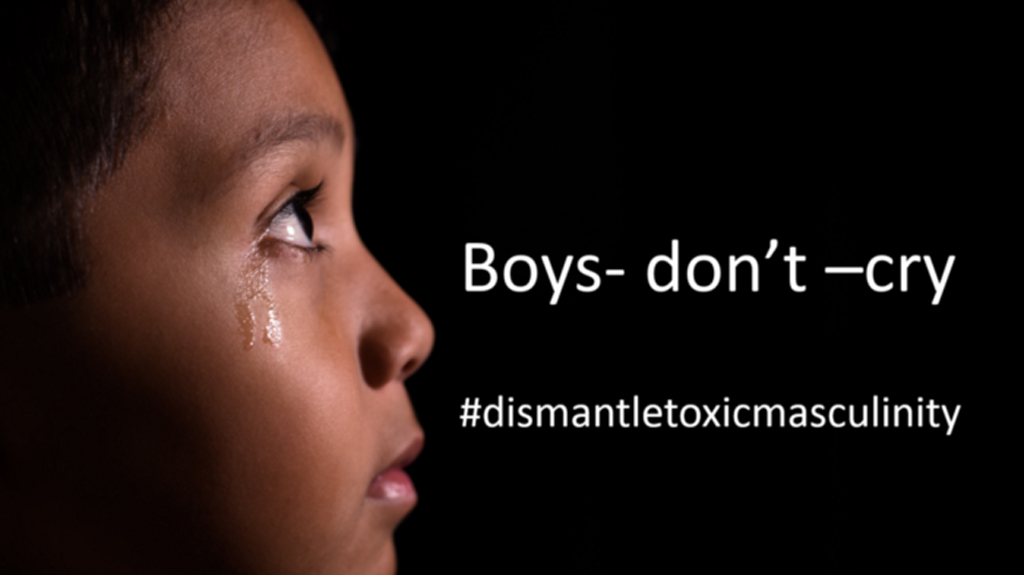We need the support of men to advocate for gender equality, but a culture that supports toxic masculinity suppresses the voices of well-meaning allies
We must upend the toxic masculine stereotypes which create harmful cultures — and which inevitably silences the voices of men who are committed to an equitable workplace and society for all.
Enough with the Bro culture. Toxic masculinity creates toxic workplaces
Catalyst research found that in organisational cultures where traditionally masculine archetypes of overt aggression, structural dominance, hoarding power and fear based leadership prevail, a climate of silence is created, resulting in up to 50% of men less likely to be committed to interrupting sexism and up to 40% of men less likely to be confident in their ability to interrupt sexism.
Regressive stereotypes perpetuate the idea of the masculine “hero”
Stereotypes
Men don’t have emotional range
The idea that masculinity equals emotional repression in men, and the flip side, too much emotional expression in women is weakness — is a toxic and dangerous stereotype that impacts how we show up in life every day and reinforces the burdening expectations of how people need to behave to comply with regressive gender norms.
@Prejudic_tionary asserts that at the heart of the stereotype that men should not express the same emotional range as a woman, is a dehumanizing gender norm of an idea of masculinity that precludes emotional vulnerability. It produces toxic behavioral patterns in male persons by limiting their emotional range e.g. outbursts of excessive aggression can be rooted in the repression of pain, distress or sadness. This severe emotional repression compounds mental health issues with The Female Lead reporting that suicide is the single biggest killer of men under 45. The result is a characterization of emotional vulnerability as being weak and the perpetuation of a dangerous stigma and self-defeating fear of weakness that prevents men from asking for support or help. The stigma is reinforced in the workplace, suppression of emotional vulnerability feeds the rise of the ego which asserts independence and exertion of power over others as a means to survive rather than reaching out for support.
Men don’t have as many “feelings” as women, rendering them better leaders
This is a problematic stereotype that tends to undermine the value of traditionally feminine emotions such as empathy and collaboration in rational decision making. This is an inherently harmful belief that female persons are more “sensitive” and therefore less rational than male persons, whereas these dispositions are not mutually exclusive, i.e. one can, and in many cases, should, be both. This creates a false equivalency between emotional repression and a lack of feelings in persons, i.e. because most men (outwardly) display a limited range of emotions due to toxic masculinity, they are not without feeling.
“But by far the worst thing we do to males — by making them feel they have to be hard — is that we leave them with very fragile egos. The harder a man feels compelled to be, the weaker his ego is.”
― Chimamanda Ngozi Adichie, We Should All Be Feminists
Yugrow asserts that we urgently need to support the inclusion of the feminine archetype in both male and female persons, i.e the traditionally feminine traits of vulnerability, collaboration and nurturing is not gender specific and is critically needed for us to survive the next crisis.
Organisations need to shift the behaviours and actions that promote regressive toxic male stereotypes, and more fundamentally, the perceptions of the qualities needed for impactful leadership. We must get behind the rise of the feminine archetype in our mission to shape a humanity that serves all.


